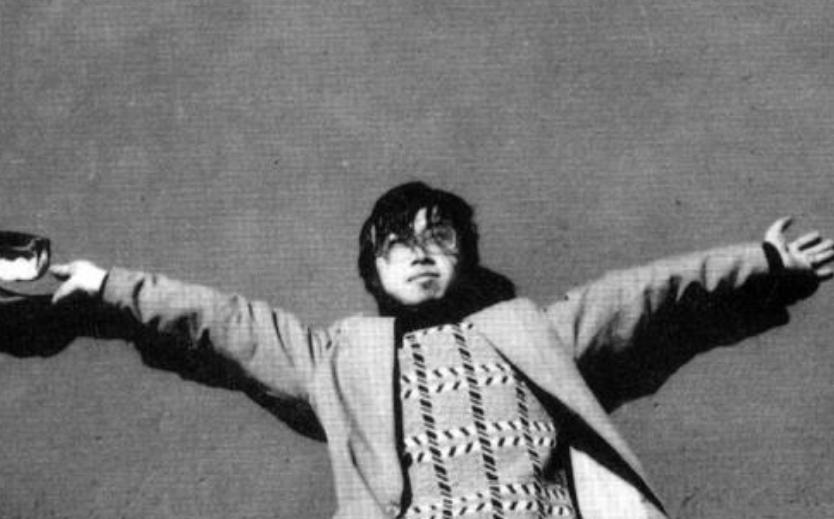How could a poet who wrote "Facing the Sea, Spring Blossoms" end his life with his own hands after more than two months? This is a question that many people can't figure out.
Perhaps it is precisely because he suffers great pain in his heart that he will have a deeper feeling for the warmth of the spring breeze and the breadth of the sea. Or maybe it is precisely because he bears irrepressible sadness that he wants to warm others with such a poem. So rather than saying that this poem was written to himself, it is better to say that it is Haizi's gift to the world.

In addition to this poem, many friends do not like to read his other works, and always feel that they are either too sad or too crazy. But in the author's opinion, whether it is "Dream as a Horse", or "Asian Copper", or even the sentence "There is nothing in the distance except for the distance", Haizi is writing poetry in the most authentic language. These languages may be a little gray, but when it comes to the end of the pen, they are all well-intentioned.
What I want to share with you in this issue is the love poem written by Haizi for the 4 women he loved deeply a month before his suicide. Although from the content of the inner poem, his heart has collapsed at this time, he is still affectionate for the people he has loved. Let's take a look:
The title is "Four Sisters", which is actually to write these 4 women into the same poem. There are so many love poems in the poetry world, and it is indeed rare for 4 people to enter the poem at the same time. The reason for this is that these 4 women all have a common characteristic: they all make Haizi more or less emotionally injured.
By the time she committed suicide at the age of 25, Haizi had never harvested any perfect love. For these 4 women, Haizi is basically in a state of unrequited love. According to the description of his former friends, he should have confessed to two of them, but he was rejected on the spot. Whether the unhappiness of the relationship is the reason for Haizi's final sad departure, we do not know.
Judging from the lyrics and mood of the poem itself, the writing is very high-level, and the whole passage can be described as sincere and touching, which makes people unbearable to read. The poem can be divided into 4 sections, the first of which begins with "All the days are broken for them" and ends. For love, Haizi is very persistent, which is as pure as he writes poetry, and the desolate hill is the helplessness in the poet's heart at this time.
The second verse ends with "A Wheat Tree" to "The Book and the Divine State," and in this verse we see an indescribable loneliness. In fact, at that time, Haizi had already become famous, and almost all the students of Peking University and Tsinghua University were reading his poems. This loneliness of his comes from the heart, a kind of loneliness that cannot be loved.
The third verse begins with "Four Sisters in the Distance" and ends with "Moon-shaped Peaks." These 4 women in his heart are still beautiful symbols, like the existence of the goddess of destiny. Haizi, who loves but can't help it, once again lets us see his good side, he is willing to use words to express the love in his heart, and there is no hatred in his heart.
The last verse begins with "To February" to the end of the poem. Haizi has no doubts about the beauty of love, so he still longs for its arrival until his death. But Haizi is entangled again, and he knows that this is his wishful thinking, and this contradiction can often be seen in Haizi's poems. The final stroke is also very poetic, and the introduction of three images of wind, sky and road pushes the feelings of the whole poem to the extreme. We seem to see a helpless young man on a hill, looking into the distance in confusion.
Looking at this poem, Haizi's powerful use of language is very strong. The introduction of every image is unexpected. The images of wheat, spring thunder, and carriages of goods seem to be unrelated, but it is difficult to fuse them into a poem without being abrupt. At the same time, in terms of artistic conception, this poem is also a masterpiece of modern poetry. The image is constantly switching between obscurity and clarity, just like the transformation of light and shadow in the film, the technique is very advanced.
Regrettably, such a high-level modern poetic technique is used in a tragic work, and the final result is that people can't bear to read it. As a teacher, I rarely recommend Haizi's works to students, for fear that this kind of sadness will affect them.
But I think that when they grow up, they should actually be involved in this kind of poetry. There are two reasons: First, only by understanding the deepest pain will we cherish the spring breeze, a wildflower, and a grain of wheat in this world, which is why Haizi can write "Facing the Sea, Spring and Warm Flowers". Second, Haizi is a pure poet, his works are rarely mixed with fame and fortune, and reading his poems can feel the touch brought by the pure words themselves, which is rare. For this kind of poetry, do you usually read it? Discussion is welcome.